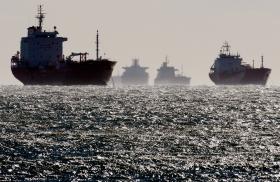The supermarket in Dahuk was apologetic: the shipment of Coca-Cola had not yet arrived, but would Pepsi be okay? There was plenty of fruit and vegetables, several different cuts of meat and many brands of breakfast cereal. There was no shortage of cheeses or ice cream. There were also over 30 choices of shampoos, and a similar selection of toothpaste. Infrared scanners made checkout quick and efficient.
None of this is remarkable, except that Dahuk is in Iraq, and has been under international sanctions since 1990. So why is Dahuk so different from images of Iraq broadcast by BBC and other Western news outlets? Iraq's President Saddam Hussein's media handlers cannot operate in Dahuk, since Dahuk is not under Saddam's control. Neither is Qaladiza, a small town with stacks of baby formula in the market. Nor is Halabja suffering from food shortages, though people exposed to the 1988 Iraqi chemical bombardment of the town are still developing strange cancers. There are simply no starving children in Iraq as a result of sanctions; the only children dying for lack of food or medicine are those whom Saddam wants to die.
The Iraqi governorates of Dahuk, Irbil, Sulaymaniyah and portions of Kirkuk have been free from Saddam's control since the Kurdish uprising in 1991. The same area that suffered the destruction of 4,000 villages, chemical-weapons attacks and the murder or disappearance of 182,000 Kurds and Turkmans, is actually flourishing. Since the implementation of United Nations Security Resolution 986, the so-called "oil-for-food program," the Kurdish regional government in northern Iraq has rebuilt 20,000 houses, 800 water systems, 600 schools, and 2,300 kilometers of new access roads.
While the oil-for-food program allocated northern Iraq 13 percent of revenue generated from Iraq's legal oil sales, an amount proportional to the north's population, only half the money has been spent. According to a 1999 UNICEF report, infant mortality in northern Iraq has actually dropped since the imposition of sanctions. A doctor in a maternity hospital reported that fertility has skyrocketed; fewer babies are being born underweight, and fewer mothers are dying in pregnancy.
The United Nations program does not work perfectly. While everyone in theory has ration cards, some people do go hungry. Families fleeing Saddam's Iraq into the northern safe haven told me that Iraqi security had confiscated their UN ration cards after accusing family members of disloyalty to the Ba'ath party; Egyptian employees of the UN's World Food Program regularly refuse to intercede.
There are also occasional shortages in medical supplies. Children's vaccines sometimes run dangerously low, often because the Iraqi authorities in Baghdad forget to order them on time. (Under terms of the 1995 Memorandum of Understanding which governs relations between Iraq and the United Nations, all contracts must be issued through Baghdad, which then distributes materials to the provinces). Some medicines are in short supply for other reasons. A pharmacist in Sulaymaniyah said that 20% of his medicines come from the portion of Iraq controlled by Saddam. Ba'ath party guards at warehouses in Baghdad simply sell the supplies to smugglers.
Iraqis living in the northern safe haven do not enjoy living under sanctions. They would like to trade freely and regain normality. Nevertheless, they acknowledge that they have flourished under sanctions because their local governments spend the money to develop schools and agriculture, rather than Scuds and amusement parks for Ba'ath Party officials. Iraqis, living in both the safe haven and in Baghdad-controlled portions of Iraq, know Saddam. They insist Saddam will interpret loosening sanctions as a reward for obstructionism. Rather than tighten the grip on Saddam, any revisions in the sanctions regime will simply encourage Saddam to further flout international law.
The lesson is clear. Sanctions do not harm Iraqis; Saddam does.
Jerusalem Post


